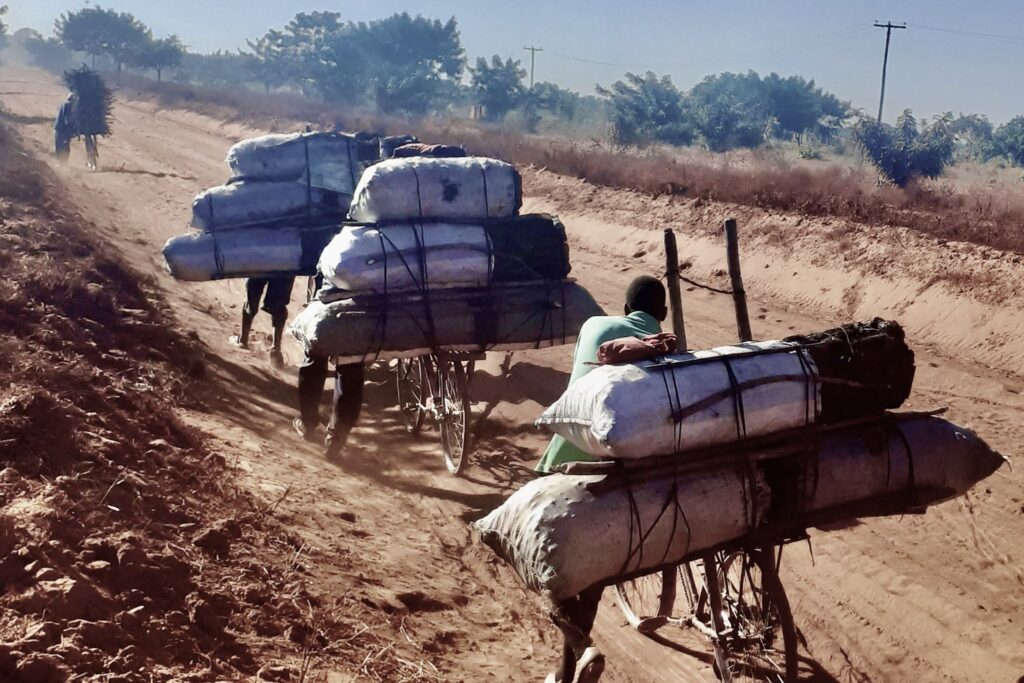Data from the Food and Agriculture Organization (FAO) of the United Nations indicates Malawi has lost approximately 29.4% of its forest cover between 1990 and 2020. This loss represents a substantial portion of the country’s forested area.
Lilongwe, Malawi … The sun’s rays are cast across the roadway through the dust kicked up by bicycle tires moving quietly along the roadway. Bicycles loaded with charcoal are headed toward the capital city.
“Hey guys, stop! stop! What you’re doing is against the law? You must change what you are doing.”
“Hey, didn’t you hear me, Stop? What you are doing is against the law. If you don’t want to get into trouble you must stop now.”
Cutting trees to make charcoal can carry heavy fines. There are laws against cutting trees in portions of the country. Malawi has established these protected areas and particular forest zones to preserve natural habitats. In these areas, it is illegal to cut the trees, but this does not stop local people from cutting the trees and making charcoal, nonetheless. For many, it is their only means of making an income to provide for their families. Without it, their families will starve.
Often in the West, the laws can be simple. If you do something that breaks the law, you can go to jail. It is open and shut and relatively simple. But in Malawi in one direction, you can break the law and go to jail. In the other direction you fail to break the law and your family goes hungry. With unemployment levels that would be intolerable in the West sometimes there are only a miniscule number of jobs available in each area. Parents see no other option. That tree standing tall just down the road will provide firewood for days or weeks for their family.
Cutting trees and selling charcoal is a chance many take every day to provide for their families. One can agree it should stop, but before we tell a person they must stop what they are doing that provides food for their families, perhaps it would be wise if we find an alternative to offer that will give them a tangible reason to stop cutting the trees.
Notes and the inspiration for this story were supplied by Lezina Danken.

